Celebrations
| Website: | Herzlich willkommen auf der Seite der QUA-LiS NRW |
| Kurs: | Celebrations_alt |
| Buch: | Celebrations |
| Gedruckt von: | Gast |
| Datum: | Freitag, 27. Februar 2026 |
Beschreibung
1. Vocabulary Holidays
| Picture | English | German | In context | Notes |
|---|---|---|---|---|
| Christmas |
Weihnachten (das Weihnachtsfest) | At Christmas the family celebrates together. | Write something that helps you learn. |
|
| Eid al-Fitr (Sugar Feast) |
das Zuckerfest | Eid al-Fitr is the end of Ramadan. | ||
| Chanukka |
Chanukka (das Chanukka-Fest) | Chanukka is an important holiday for Jews. | ||
| Holi |
Holi (das Holi-Fest) | Holi is the festival of colours. | ||
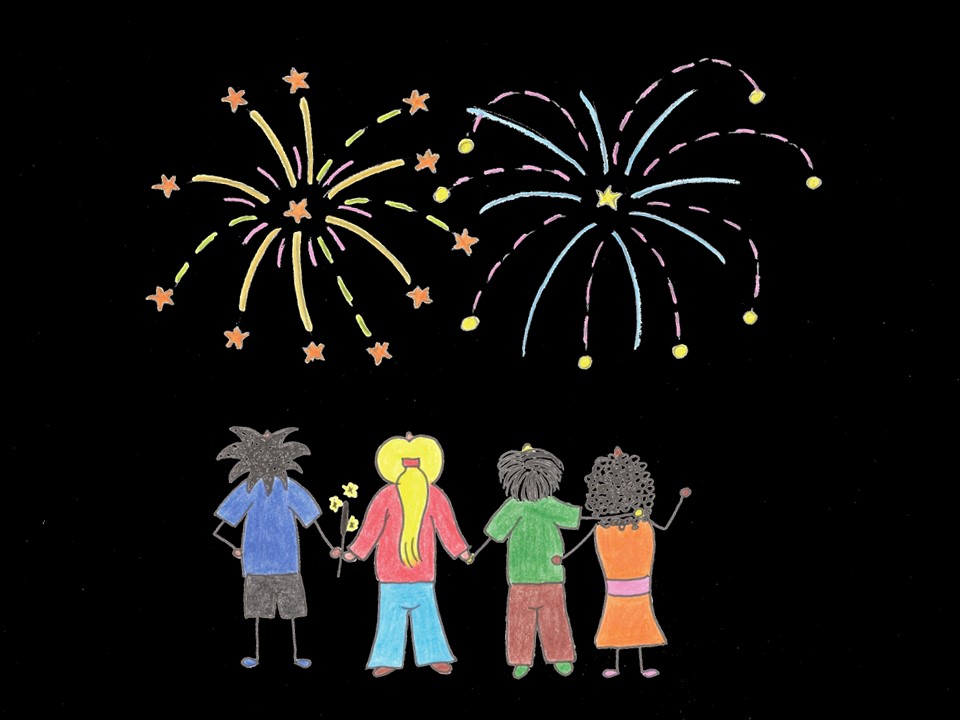 |
New Year's Eve |
Silvester | On New Year's Eve we light firework. | |
 |
Easter |
Ostern | On Easter we paint eggs. | |
 |
Halloween |
Halloween | On Halloween people dress up in costumes. |
| Picture | English | German | in context | notes |
|---|---|---|---|---|
| to celebrate |
feiern | We celebrate Christmas in December. | Write something that helps you to learn. |
|
| bank holiday |
gesetzlicher Feiertag | On a bank holiday shops are closed. | ||
 |
Christian |
christlich | Christians celebrate Christmas. | |
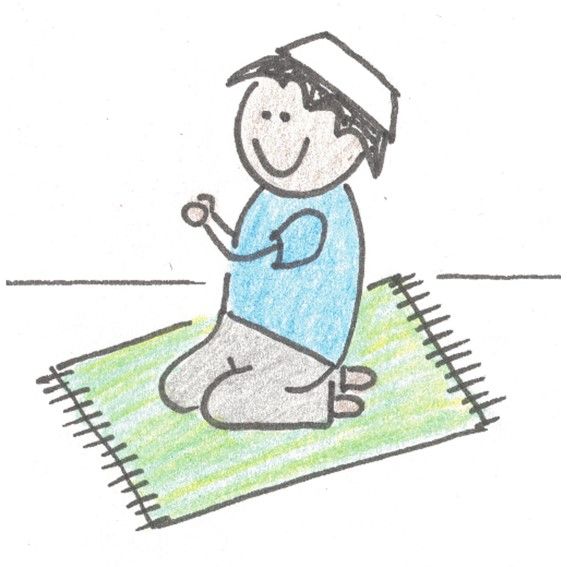 |
Muslim |
muslimisch | Muslim people celebrate Eid al-Fitr. | |
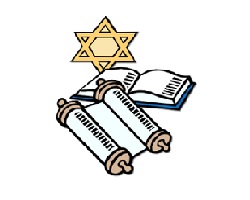 |
Jewish |
jüdisch | Jewish people celebrate Chanukka. | |
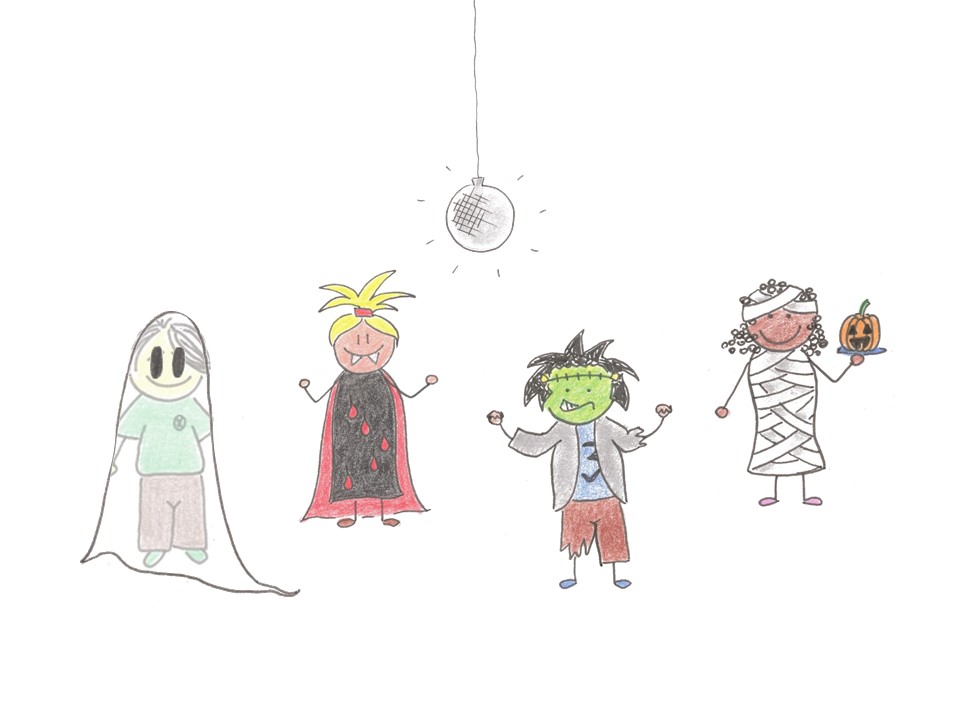 |
costume |
(das) Kostüm | You wear a scary costume on Halloween. | |
 |
vampire |
(der) Vampir | A vampire drinks blood. | |
 |
ghost |
(der) Geist | A ghost is white and scary. | |
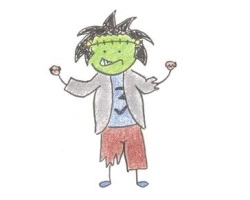 |
zombie |
(der) Zombie | A zombie never dies. | |
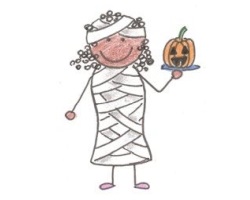 |
mummy |
(die) Mumie | A mummy is very old. |
1.1. Dialogue Cards - Holidays
1.2. Flashcards - Holidays
1.3. Memory: Find the correct pairs.
learningapps.org: Cookies
1.4. Paraphrasing (optional)
Erkläre drei Wörter aus dieser Lektion für das "dictionary".
Führe folgende Schritte aus:
Schritt 1: Lies zwei oder drei Einträge im "dictionary" als Beispiel.
Schritt 2: Finde Worte, die zum Thema gehören, aber noch nicht im "dictionary" stehen.
Schritt 3: Erstelle einen neuen Eintrag für die Kategorie "Celebrations".
Schritt 4: Schreibe das englische Wort und die deutsche Übersetzung in den Titel.
Schritt 5: Erkläre das Wort im "dictionary".
Schritt 6: Schreibe einen Beispielsatz mit dem Wort.
Extra-Schritt (kreativ): Wenn du möchtest, kannst du ein Bild ergänzen. Du kannst etwas zeichnen oder ein Foto machen.
2. Vocabulary Seasons and months
| Picture | English | German | In context |
Notes |
 |
season |
(die) Jahreszeit | There are four seasons in a year. | Write something that helps you to learn. |
| spring |
(der) Frühling | In spring it gets warmer and flowers grow. | ||
| summer |
(der) Sommer | In summer it is often hot. | ||
| autumn |
(der) Herbst | In autumn the leaves fall from trees. | ||
 |
winter |
(der) Winter | In winter it is cold. |
| English | German | In context |
Notes |
| month |
(der) Monat | A year has twelve months. | Write something that helps you to learn. |
| January |
(der) Januar | In January we celebrate New Year's Day. | |
| February |
(der) Februar | February is the shortest month. | |
| March |
(der) März | In March it gets warmer. | |
| April |
(der) April | In April we celebrate Easter. | |
| May |
(der) Mai | May is the fifth month of the year. | |
| June |
(der) Juni | In June summer begins. | |
| July |
(der) Juli | In July we can go swimming in the sea. | |
| August |
(der) August | In August there are holidays in school. | |
| September |
(der) September | In September autumn begins. | |
| October |
(der) Oktober | Halloween is in October. | |
| November |
(der) November | In November the weather is often cold and wet. | |
| December |
(der) Dezember | We celebrate Christmas in December. |
2.1. Dialogue Cards - Seasons and months
2.2. Flashcards - Seasons and months
2.3. Timeline
learningapps.org: Cookies
2.4. Holiday calender
Here you can look up important holidays. You need the calender for the next task “When do we celebrate what?“.
Hier kannst du die Daten verschiedener Feiertage nachschauen. Du benötigst den Kalender für die Aufgabe “When do we celebrate what?“.
Here you can download the calender.
Hier kannst du den Kalender herunterladen.
2.5. When do we celebrate what?
Find out when the holidays are celebrated in the year 2021. You need the holiday calender for this task. Write complete sentences.
Finde heraus, wann die Feiertage im Jahr 2021 gefeiert werden. Für diese Aufgabe benötigst du den "holiday calender". Schreibe ganze Sätze
learningapps.org: Cookies
2.6. Teamwork - days and months*
Task:
Work with a partner and ask him / her about the holidays in the calender.
- In which month are they?
- On which days of the week are they in 2021?
Aufgabe:
Arbeite mit einem Partner / einer Partnerin zusammen und frage ihn / sie etwas zu den Feiertagen im Kalender.
- In welchem Monat feiern wir sie?
- An welchem Wochentag sind die Feiertage 2021?
Examples:
Partner A: "In which month do we celebrate Christmas?"
Partner B: "We celebrate Christmas in December."
Partner B: "On which day of the week is New Year's Eve this year?"
Partner A: "New Year's Eve is on a Friday."
Then partner A asks the next question and partner B answers. ...
Beispiel:
Partner A: "In which month do we celebrate Christmas?"
Partner B: "We celebrate Christmas in December."
Partner B: "On which day of the week is New Year's Eve this year?"
Partner A: "New Year's Eve is on a Friday."
Dann stellt Partner A die Frage und Partner B antwortet. ...
3. Holidays in Great Britain and the USA *- Mark the words
3.1. Listen and read*
Listen to the text while you read it. After that read it out loud. If you want to you can record it.
Höre dir den Text an, während du ihn liest. Lese ihn danach laut vor. Wenn du möchtest, kannst du den Text aufnehmen.
1. Christian Holidays
Slow version:
In Great Britain we call holidays when all the shops and schools close “bank holidays” (because the banks also close). Many people in Great Britain are Christians and many bank holidays are Christian religious holidays. You probably also know them from Germany.
British people celebrate Christmas on three days, Christmas Eve (the evening of December 24th) Christmas Day on December 25th and Boxing Day on December 26th.
The next big holiday is Easter. There are also three bank holidays for Easter: The Friday before Easter is called Good Friday. Then there are Easter Sunday and Easter Monday. Many people in Great Britain also celebrate Thanksgiving, but it is not a bank holiday. This is different in the USA. Here, Thanksgiving is the most important holiday of the year for many families.
2. Religious Holidays (Other Religions)
Slow version:
Of course, there are also many other religions in Great Britain. Muslims celebrate Eid al-Fitr at the end of the month of Ramadan. Another important Muslim holiday is Eid al-Adha. Because many people from India and Pakistan live in Great Britain, the Hindu festivals Diwali and Holi are also important. Jewish people celebrate Chanukka and Yom Kippur. But at the moment only the Christian holidays are bank holidays in Great Britain.
3. Non-Religious Holidays
Slow version:
There are also some important holidays that are not religious, for example New Year’s Eve on December 31st and New Year on January 1st. In the USA, Halloween is also an important holiday on the 31st of October, and people in Great Britain and Germany also celebrate this day more and more.
3.2. Text - easy version
3.3. Listen and read - easy version
Listen to the text while you read it. After that read it out loud. If you want to you can record it.
Höre dir den Text an, während du ihn liest. Lese ihn danach laut vor. Wenn du möchtest, kannst du den Text aufnehmen.
1. Christian Holidays
Slow version:
Many holidays in Great Britain are from the Christian religion. A very important holiday in Britain is Christmas. British people celebrate Christmas on three days (Christmas Eve, Christmas Day and Boxing Day). The next big Christian holiday is Easter. The Friday before Easter Sunday and Easter Monday is called Good Friday. Thanksgiving is also a Christian holiday. Only some people in Great Britain celebrate Thanksgiving. In the USA, Thanksgiving is the most important holiday of the year for many families.
2. Holidays from other Religions
Slow version:
Many people who live in Great Britain today are not Christians. There are also many Muslims, Hindus or Jews. Muslims celebrate Eid al-Fitr at the end of the month of Ramadan. Another important Muslim holiday is Eid al-Adha. Many Hindu people from India and Pakistan live in Great Britain. They celebrate the Hindu festivals Diwali and Holi. Jewish people celebrate Chanukka and Yom Kippur.
3. Holidays that are not religious
Slow version:
New Year’s Eve on December 31st and New Year on January 1st are holidays that are not religious. In the USA, Halloween is also an important day. People celebrate it on October 31st.
3.4. Multiple Choice - Holidays in Great Britain an the USA
4. Halloween vocabulary
This vocabulary will help you to understand the text.
Diese Worte helfen dir, den Text zu verstehen.
| English | German | Notes |
|---|---|---|
| autumn |
(der) Herbst | Write or draw something that helps you to learn. |
| to celebrate |
feiern | |
| to believe |
glauben | |
| spirit |
(der) Geist | |
| ghost |
(das) Gespenst | |
| to invite someone |
jemanden einladen | |
| to scare someone off |
jemanden abschrecken / verscheuchen | |
| to attend something |
an etwas teilnehmen | |
| haunted house |
(das) verfluchte Haus | |
| to carve something |
etwas schnitzen | |
| pumpkin lanterns / jack-o'-lanterns |
(die) Kürbislaternen | |
| scary |
unheimlich | |
| to dress up |
hier: sich verkleiden | |
| sweets |
(die) Süßigkeiten | |
| popular |
beliebt | |
| witch |
(die) Hexe | |
| vampire |
(der) Vampir | |
| skeleton |
(das) Skelett | |
| werewolf, pl. werewolves |
(der) Werwolf, Mz. (die) Werwölfe |
4.1. Halloween - text*
Read the text. You can also listen to the audio file.
Lies den Text. Du kannst dir auch die Audioaufnahme anhören.
----
Here you can listen to the text:
Slow version:

Halloween is a festival in autumn that is celebrated in many countries around the world.
It is celebrated on 31 October every year. It is also known as All Hallows’ Eve or All Saints’ Eve and has a long tradition.
In the old days, people believed that the spirits of the dead walked the earth at Halloween. Ghosts of family members were invited home and bad spirits were scared off.
Today, many adults attend costume parties, go on ghost tours, visit haunted houses or watch horror films at Halloween.
Traditional Halloween activities for kids include wearing costumes, carving pumpkin lanterns (called jack-o’-lanterns), telling scary stories and playing tricks on people.
Children often dress up in costumes and do trick-or-treating, that means they go from house to house and ask for sweets.
Popular Halloween costumes include witches, vampires, skeletons, werewolves and ghosts.
4.2. Halloween - quiz
Tick the correct answers. Careful: Sometimes more than one is correct.
Klicke die richtigen Antworten an. Achtung: Manchmal sind mehrere Antworten richtig.
4.3. Halloween - puzzle
learningapps.org: Cookies
4.4. Your text
Write a text about your favourite holiday in your folder. If you like, you can also draw a picture. Try to answer the following questions in your text.
Schreibe in deinem Heft einen Text über dein Lieblingsfest. Wenn du möchtest, kannst du auch ein Bild dazu zeichnen. Versuche in deinem Text die folgenden Fragen zu beantworten.
Questions:
- What is the name of the holiday?
- When do you celebrtae it?
- Who do you celebrate it with?
- What do you do on that day?
- What do you eat and drink?
- Why do you like it?
My favourite holiday is my birthday. My birthday is in June and I like to celebrate in the park.
I invite my friends. We play games or sit together under the big tree.
We eat ice cream in the afternoon and make a barbecue in the evening.
I like my birthday because it is my special day.